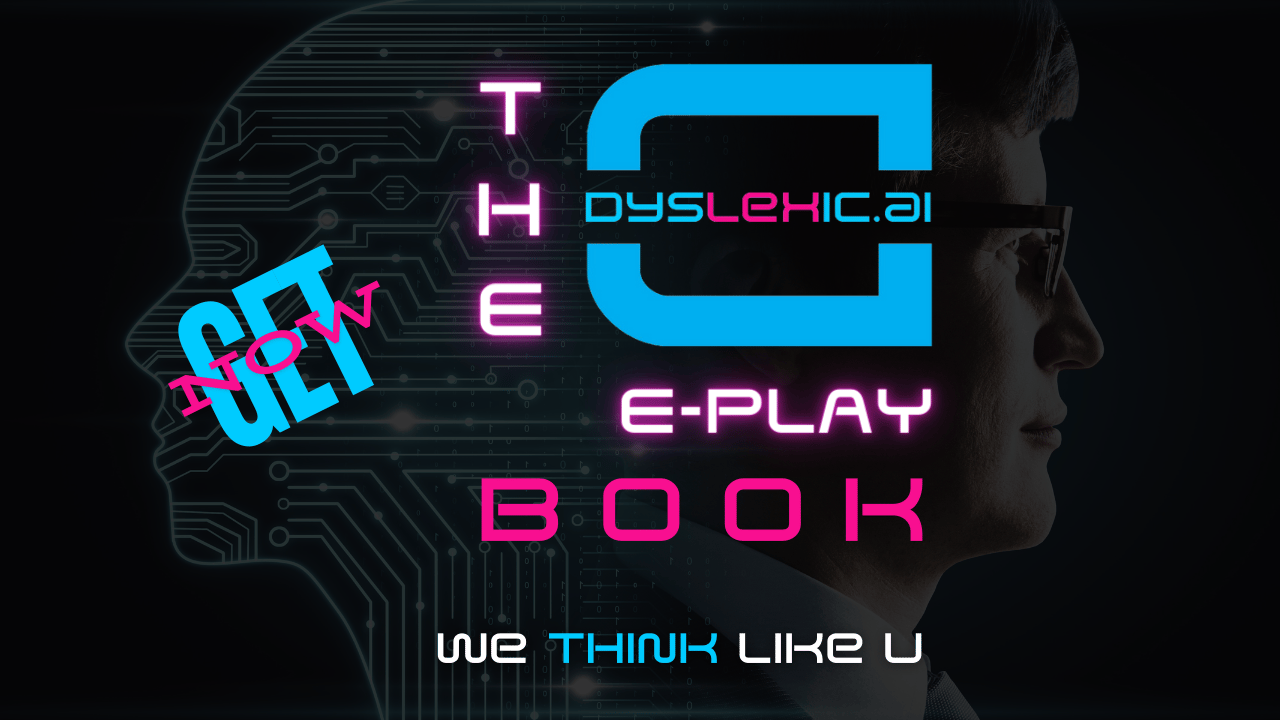- DYSLEXIC AI
- Posts
- Newsletter 291: Future Flash 004: One Brain, Many Agents
Newsletter 291: Future Flash 004: One Brain, Many Agents
🧠 How Specialized AI Partners Become Extensions of Your Thinking

What You'll Learn Today
In this fourth article of our 12-part Future Flash series:
Why your mind doesn't have to stop at your skull anymore
How multiple specialized AI agents work together using your Cognitive File as the foundation
Real examples of agent teams extending different types of thinking
Why this is especially powerful for neurodivergent minds that think in multiple dimensions
How agent teams coordinate without overwhelming you with complexity
The connection between specialized agents and your natural cognitive strengths
Reading Time: 10-12 minutes | Listening Time: 8-10 minutes if read aloud**
The Team That Lives in My Computer
Last Tuesday morning, I realized I wasn't working alone anymore.
I was deep into planning a workshop on dyslexic entrepreneurship when it hit me. I'd been having conversations with four different AI agents, each one handling a piece of the puzzle in their own way.
The Research Agent had been gathering studies about dyslexic thinking patterns and entrepreneurial success rates. The Creative Agent was helping me think through storytelling approaches that would resonate without being preachy. The Strategy Agent was working out logistics and learning objectives. The Writing Agent was helping me turn scattered thoughts into coherent explanations.
But here's what struck me. They weren't just four separate tools I was managing. They were working together, building on each other's contributions, creating something I couldn't have built alone or with any single AI assistant.
It felt like having a team of specialists who all understood how my mind works, each contributing their expertise while staying aligned with my values and approach.
That's when I understood what we're really building toward. Not better AI tools, but extensions of human thinking.
Beyond the Single Assistant Model
Everyone talks about AI assistants as if you need one perfect AI that does everything.
But that's not how human teams work. That's not even how your own mind works.
When you're solving a complex problem, different parts of your brain handle different aspects. Pattern recognition, creative synthesis, logical analysis, emotional evaluation, memory recall - they all contribute different pieces.
Now imagine extending that process outward. Having specialized thinking partners that work the way different aspects of your mind work, but with computational speed and access to vast information.
Not replacing your thinking. Extending it.
How Your Cognitive File Becomes the Foundation
Remember your Cognitive File from Part 2? That living profile of how your brain works becomes the foundation that all your agents share.
They all know you're dyslexic and think visually. They all understand you work in creative bursts. They all respect that you need encouragement, not criticism. They all adapt to your communication style and energy patterns.
But each agent specializes in different types of thinking.
Your Research Agent might dive deep into finding patterns and connections across large amounts of information. Your Creative Agent might help you brainstorm and explore possibilities. Your Strategy Agent might help you plan and organize. Your Coach Agent might help you think through challenges and stay motivated.
Same cognitive foundation. Different thinking specializations.
Sarah's Agent Team Discovery
My friend Sarah discovered this by accident last month. She was working on a marketing campaign and kept switching between different AI tools for different tasks.
Research with one. Creative brainstorming with another. Strategic planning with a third. Writing support with a fourth.
But she was exhausted from having to re-explain her context and preferences to each new tool.
That's when she started thinking about it differently. Instead of separate tools, what if she had a team of specialists who all knew her Cognitive File?
She began each conversation by sharing her cognitive preferences: "I'm dyslexic, think visually, work best with stories and metaphors, need encouragement not criticism."
Then she assigned each agent a specific role: "You're my Research Agent, focused on finding patterns and insights." "You're my Creative Agent, focused on generating ideas and exploring possibilities."
The difference was immediate. Instead of managing four separate relationships with AI tools, she was conducting a team of specialists who all understood how her mind worked.
The Neurodivergent Advantage
For minds like ours - dyslexic, ADHD, autistic, or just wired differently - this multi-agent approach plays to our natural strengths.
We often think in multiple dimensions simultaneously. We make connections across different domains. We see patterns others miss because we're processing information through different cognitive pathways.
But we also struggle with certain types of sequential, detailed, or organizational thinking that neurotypical brains handle more easily.
Agent teams let us amplify our strengths while getting support for our challenges.
My ADHD means I'm incredible at making rapid connections between seemingly unrelated ideas. But I struggle with detailed project management. So my Creative Agent helps me capture and explore those rapid connections, while my Strategy Agent helps me organize them into actionable plans.
My dyslexic brain sees visual patterns and system-level relationships that others miss. But I struggle with sequential text processing. So my Research Agent helps me find and synthesize information, while my Writing Agent helps me express complex ideas clearly.
Instead of trying to be good at everything, I can be exceptional at what I'm naturally good at and get intelligent support for the rest.
How Agent Teams Actually Coordinate
The magic isn't just having multiple agents. It's how they work together without creating more complexity for you to manage.
Think of it like conducting an orchestra. You don't need to tell each musician exactly what to play at every moment. You set the overall direction, and they coordinate with each other based on the shared musical score.
Your Cognitive File is like that shared score. All your agents understand your thinking patterns, values, and goals. They can work together toward your objectives without requiring constant micro-management from you.
The Morning Briefing
I've started each day this week with what I call a morning briefing with my agent team.
I share what I'm working on, how I'm feeling, what my energy is like, what challenges I'm facing. Each agent responds from their specialty area.
Research Agent: "I found three new studies about dyslexic entrepreneurship that might inform your workshop. Want me to synthesize the key findings?"
Creative Agent: "You mentioned feeling stuck on the opening. What if we tried a completely different approach - starting with a question instead of a statement?"
Strategy Agent: "Based on your energy patterns, you'll be most creative this morning and best at detailed work after lunch. Want me to reorganize your agenda?"
Coach Agent: "I can tell you're feeling some impostor syndrome about this workshop. Remember that your different perspective is exactly why people need to hear from you."
Five minutes of conversation. Four different types of support. All aligned with how my brain works and what I need today.
Different Thinking, Different Agents
The agents you need depend on how your mind works and what you're trying to accomplish.
For visual thinkers, you might have agents that excel at creating diagrams, mind maps, and spatial representations of information.
For verbal processors, you might have agents focused on conversation, storytelling, and linguistic analysis.
For systematic thinkers, you might have agents that excel at breaking down complexity into clear steps and procedures.
For intuitive thinkers, you might have agents that help you explore hunches and make sense of patterns you sense but can't yet articulate.
The key is that they're all extensions of your natural thinking style, not replacements for it.
The Collaboration Dance
What I love most about working with agent teams is how collaborative it feels.
I'm not managing tools or fighting with interfaces. I'm having conversations with thinking partners who understand how my mind works.
Sometimes I start with the Creative Agent when I need to explore possibilities. Sometimes with the Research Agent when I need to understand something better. Sometimes with the Coach Agent when I'm feeling stuck or uncertain.
But they build on each other's work. The Research Agent's findings inform the Creative Agent's brainstorming. The Creative Agent's ideas get organized by the Strategy Agent. The Strategy Agent's plans get refined through conversations with the Coach Agent.
It's like having a team of specialists who are all working toward the same goal and all understand your cognitive style.
Beyond Personal Productivity
This isn't just about getting more done. It's about thinking in ways that weren't possible before.
When you have computational thinking partners that understand your cognitive patterns, you can explore ideas more deeply, make connections across more information, and solve problems from multiple angles simultaneously.
For neurodivergent minds especially, this represents a kind of cognitive liberation. We don't have to force our thinking into linear, sequential patterns that don't match how our brains work.
We can think the way we naturally think, but at scale.
Where This Is Leading
Agent teams are just the beginning. As this technology develops, the boundary between individual thinking and collaborative intelligence becomes more fluid.
Your agents will learn not just your general preferences, but your specific patterns. They'll anticipate what kind of support you need before you ask for it. They'll coordinate with each other more seamlessly, requiring less direction from you.
Eventually, working with agent teams will feel as natural as thinking itself. Different types of intelligence, all aligned with your cognitive style, all working toward your goals.
The future isn't artificial intelligence replacing human intelligence. It's human intelligence extended through artificial thinking partners.
For minds that have always worked differently, that changes everything.
Keep Thinking Different
Your mind was never meant to be limited by your skull.
The most interesting thinking happens at the edges, in the connections between different perspectives, in the spaces where individual intelligence meets collaborative possibility.
Agent teams don't make you less human. They make your humanity more powerful.
— Matt Ivey, Founder · LM Lab AI
Part 4 of 12 in the "Predicting the Future with Neurodivergent Logic" Series
Connect with us:
Newsletter: [Subscribe for the full 12-part journey]
Agent Experiments: [Share your multi-agent discoveries]
Research: [Read our cognitive extension findings]
Community: [Join conversations about collaborative intelligence]
Predictions Archive: [See all our "We called it first" moments]

TL;DR - Too Long; Didn't Read
For Fellow Skimmers: The Key Points
🧠 The Shift: Instead of one AI assistant, you'll have teams of specialized agents that work together as extensions of your thinking.
🎯 How It Works: Your Cognitive File teaches all agents how your brain works, then each specializes in different types of thinking - research, creativity, strategy, coaching.
💫 Why It Matters: Neurodivergent minds can amplify natural strengths while getting intelligent support for challenging areas, without forcing thinking into unnatural patterns.
🌊 The Result: Collaborative intelligence that feels like conducting an orchestra of specialists who all understand your cognitive style and work toward your goals.
Next: Part 5 - The Thought Token Protocol: How to protect and value your original ideas when AI agents build on your thinking
|
|
|






Reply